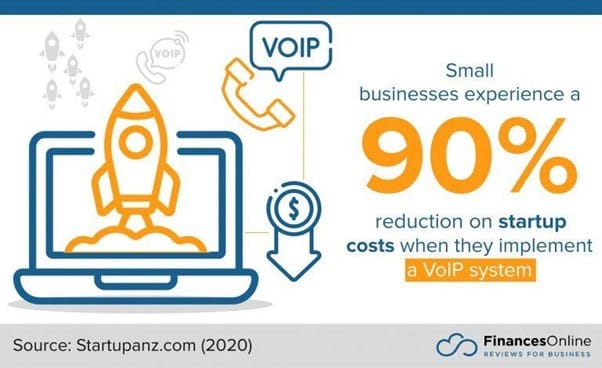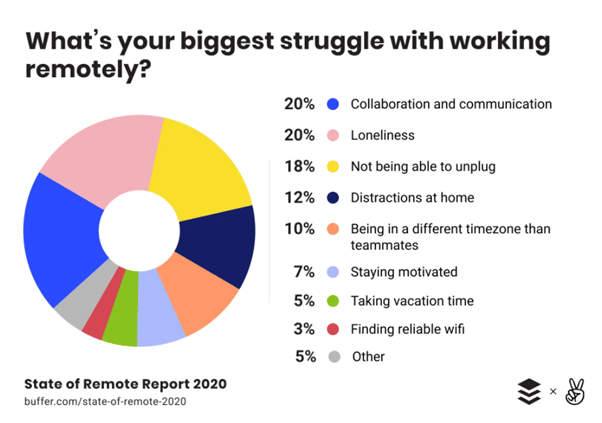Communication is a vital part of your business strategy. But many businesses stick to the systems they know, leaving them with aging solutions. It can hamper their internal and external communications, especially as workforces go remote.
A solid enterprise phone system can bring new features and innovations to power business communications. Here, we’ll go through what an enterprise phone system is, its importance, and its benefits.
IMAGE: UNSPLASH
What Is An Enterprise Phone System?
An enterprise phone system is a business solution that handles internal, inbound, and outbound communications. This usually refers to a cloud-based or VoIP phone system that doesn’t require on-premise installation.
They provide businesses with advanced calling features, flexible deployment, unified communications, and cost-effective pricing. There are three types of enterprise phone systems:
Key System Unit (KSU)
Also known as multiline phone systems, it’s a traditional on-premise business solution that connects a limited number of users. It’s best for small businesses, but it’s basic and lacks features.
Private Branch Exchange (PBX)
A PBX is a beefed-up KSU with additional features, such as automatic call routing. It can handle more users, and, with hosted or CloudPBX options, it’s a cost-effective, flexible, and scalable solution for small and medium-sized businesses.
Voice Over Internet Protocol (VoIP)
VoIP phone systems swap phone lines for internet lines and are the most advanced. It provides unified communications, reliability, a full range of features, and a scalable solution for all business types.
There isn’t a perfect enterprise phone system, but businesses often look to CloudPBX and VoIP solutions to provide flexible working environments and detailed call features. We’ll focus on these solutions here.
Why Is An Enterprise Phone System Important?
You might still be on the fence about investing in an enterprise phone system, especially as a small business. But there’s a massive advantage to using VoIP vs landline for business communications. For example, an enterprise phone system:
Delivers Great Customer Service
Business phone systems enhance the customer experience through added features and functionality. Additionally, calls can be made and received anywhere, making it crucial for small businesses.
Grows With Your Customers
Your user base grows with great customer service, leading to more calls and messages. So, you need a system that scales with you. You can add or remove users in VoIP or CloudPBX solutions instantly.
Decreases Pressure On You And Your Employees
With call routing, business phone systems let you answer calls anywhere, anytime. Your phone system vendor will provide technical support and management of your solution, eliminating the need to employ trained technicians.
Streamlines Workflow
An enterprise phone system can become a unified communications platform. It simplifies internal and external communications, streamlining your workflow and leading to a more productive and efficient workforce.
Saves Time, Money, And Resources
For cloud-based and VoIP solutions, you don’t need to invest in expensive on-premise hardware or upgrades for each new employee.
Your phone system is managed via your providers’ server with a network of redundant servers, limiting downtime. Additionally, you can choose between several plans based on business size and needs. It saves you time, money, and resources.
IMAGE: FINANCE ONLINE
Benefits Of An Enterprise Phone System
Wide Range Of Call Features
Innovation is perpetual in the digital space. Enterprise phone systems benefit from this and have various calling features, like interactive voice response systems (IVR). It automatically directs calls to where they’re needed based on your preferences. Other features include:
- Intelligent call-routing options, like skills-based or time-based routing
- Call queues
- Voicemail
- Call monitoring/analytics
- Automatic call distribution
- Auto diallers
Easy To Upgrade
Cloud-based phone system providers take care of hardware requirements like server space. As well as reducing costs, you can easily upgrade your plan with your provider. Upgrades such as adding features, new app integrations, and managing users are all possible through an online dashboard or call with your service rep.
Unified Communications Platform
The right enterprise phone system is more than a simple communication tool. It can drive employee collaboration and productivity by creating a unified communications platform.
It allows your employees to collaborate and communicate in a centralized hub through integrations with other apps and built-in collaboration tools. Additionally, by using the same standardized platform, every employee has access to the same app collections regardless of whether they’re working remotely or in an office environment.
For instance, in a video call with a new coworker, an employee might want to share a customer onboarding template. Instead of emailing it over or pausing the call, they can share it immediately through the enterprise platform. It’s ideal for training or remote collaboration.
Data-Driven Decision Making
Modern enterprise phone systems come with enhanced analytics features. By monitoring critical call metrics, like average handle time, you can gain valuable insights into the company and employee workflow.
This lets you make better, data-driven decisions to boost employee performances and improve customer experiences. Some solutions come with real-time dashboards, allowing you to listen in and make instant changes to improve team engagement and power business communications.
IMAGE: BUFFER
Integrations With Apps
Every business uses several digital devices, platforms, and apps to provide excellent customer experiences and seamless internal communications. So, to satisfy individual business needs, features, and functionalities, enterprise phone systems can integrate with third-party apps, such as:
- CRMs
- Video conferencing platforms
- Cloud-based apps
- Recruitment
- Accounting
- Social platforms
Through integrations and add-ons, your phone system molds to fit your specific requirements.
Manage A Remote Workforce
The modern workforce is flexible, with employees working remotely and in the office. VoIP phone systems eliminate the need for a desk phone or landline. But employees can communicate as effectively using a laptop or mobile phone.
Additionally, they’re using the same unified platform as their coworkers. It enables businesses to be agile, flexible, and adaptable to changing business environments and workforces.
Security is the foundation of enterprise phone systems, so your business and customers can rest easy that their data and communications are safe.
Modernize Your Connections
Communication is an essential asset for your business, and enterprise phone systems can make all the difference. With a wide range of features, flexibility, integrations, and security, you can manage all of your internal and external communications on a unified platform.
It streamlines your workflow and provides employees with the tools they need regardless of where they work. With several pricing options available, the right phone system adapts and scales with your business, letting you focus on what truly matters to drive your success.




COMMENTS